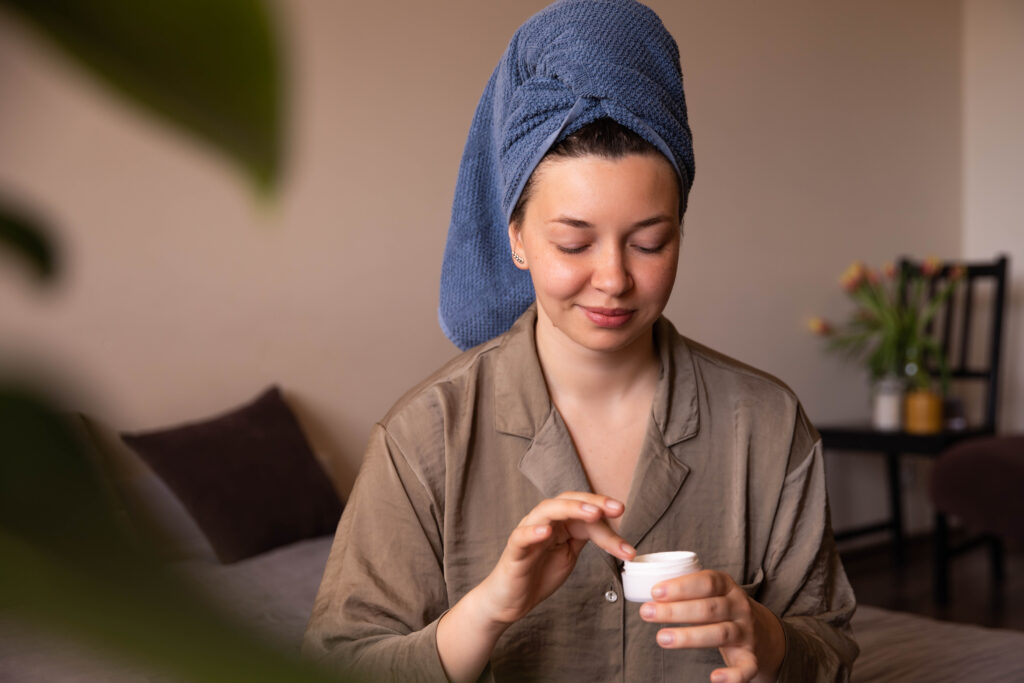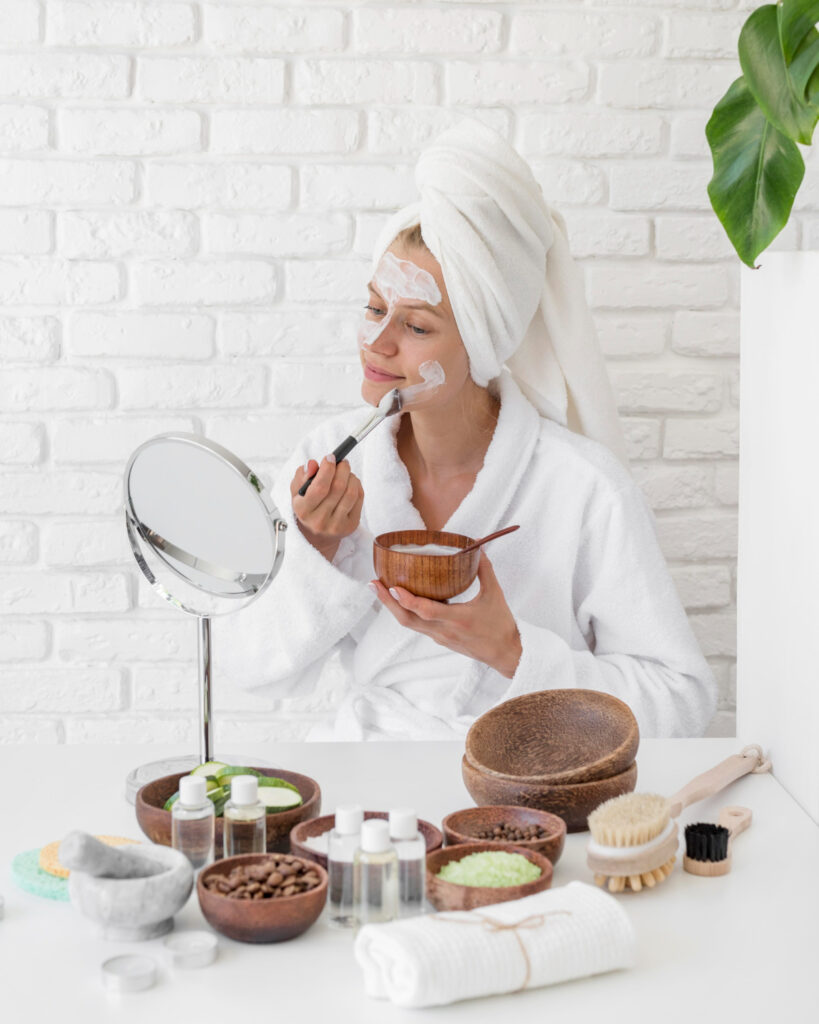Face Darker Than Body | Reasons To Solutions

In a realm captivated by standards of beauty and flawless visages, our skin frequently serves as a canvas my face is darker than my body remedy for self-expression and self-acceptance. Yet, a perplexing phenomenon often arises: why does our facial skin sometimes present a darker hue than the rest of our body? In this scenario, the pursuit of optimal skincare becomes paramount.
Today’s discourse embarks on an expedition to unveil the mysteries behind this enigmatic disparity, exalting the distinctive beauty inherent in each individual. Accompany Easy Peasy Skincare on this odyssey as we plunge into the realms of self-discovery, illuminating the captivating intricacies of our skin and redefining the essence of embracing our authentic selves.
Crucial Aspects of the Face Darker Than Body Exposition:
⦁ Face Darker Than Body Causes ⦁ Remedies ⦁ Therapies ⦁ Home Solutions ⦁ Beauty Counsel
Now, equipped with the knowledge of what lies ahead, delve into the information that has led you here!
What Propels the Obscurity of a Darker Face?
Numerous factors contribute to this occurrence, as elucidated by dermatologists. Primarily, the face houses a greater concentration of cells than other bodily regions, resulting in heightened susceptibility to tanning and consequent darkening.
Additional Factors Might Encompass:
Excessive Sun Exposure:
A primary catalyst for my face is darker than my body remedy my face is darker than my body remedy facial darkening is prolonged exposure to the sun. Given the face’s increased vulnerability to solar rays, this exposure can spur elevated melanin production, leading to hyperpigmentation.
Adopting protective measures, such as donning hats, utilizing sunscreen, and seeking shade, can attenuate these effects and impede further darkening.
Melasma:
Termed the “mask of pregnancy,” melasma manifests as dark patches on the face. Hormonal shifts, sun exposure, and certain medications can incite this condition, predominantly affecting pregnant women but also extending to non-pregnant individuals.
Consultation with a dermatologist is imperative to discern suitable treatments, which may encompass topical creams, chemical peels, or laser interventions.
Post-Inflammatory Hyperpigmentation:
Acne outbreaks, skin inflammation, or facial injuries can leave enduring marks known as post-inflammatory hyperpigmentation. These dark spots persist beyond the resolution of the initial condition, contributing to facial darkening.
Practicing gentle skincare, including routine cleansing, exfoliation, and targeted treatments, can gradually alleviate these marks and restore an even skin tone.
Celebrating Diversity: Ethnicity and Melanin Dispersion:
Individual genetic composition significantly influences melanin distribution, the pigment dictating skin color. Those with darker skin tones may inherently possess more facial melanin, contributing to the perception of a darker face.
Embracing the diversity of our skin tones bolsters self-confidence and fosters self-acceptance, recognizing these unique variations as integral facets of our identity.
Irritant Cosmetic Products:
In the pursuit of flawless skin, reliance on myriad cosmetic products may inadvertently expose the skin to harmful chemicals. These substances can lead to adverse effects such as dry patches, age spots, discoloration, and acne outbreaks.
Medications:
Certain medications, including non-steroidal anti-inflammatory drugs, antimalarials, and cytotoxic drugs, have been associated with facial hyperpigmentation. Vigilance regarding potential side effects and seeking professional guidance is essential.
Understanding the risks tied to medication-induced hyperpigmentation empowers individuals to make informed decisions about their treatment.
Why Is My Skin Darkening and Losing Luster?
The inexplicable darkening of one’s face prompts a familiar query – why is my skin getting darker without sun exposure? While UV rays’ effects are well-known, other factors contribute to skin darkening, stemming from both internal and external sources.
Environmental Influences: (pollution, dust) Aging Deficiencies in Vitamins and Minerals: (e.g., vitamin C, vitamin E, and antioxidants) Inadequate Skincare Practices and Insufficient Cleansing Hormonal Shifts
While seemingly inconspicuous, these factors can exert considerable influence on the skin, necessitating a proactive skincare routine.
Face Darker Than Body Home Solutions:
Seeking relief from persistent pigmentation issues affecting your complexion? Explore natural, efficacious remedies to revive your skin’s radiance. Unearth the potency of readily available treatments that combat pigmentation, unveiling a luminous and even skin tone.
Aloe Vera:
Directly apply fresh aloe vera gel to affected areas. Recognized for its soothing and healing attributes, aloe vera may assist in reducing pigmentation over time.
Avocado:
Replete with vitamins, minerals, and antioxidants, avocados nourish and brighten the skin. Mash half an avocado and apply it to your face for visible results in 2 to 3 days.
Apple Cider Vinegar:
Combine equal parts apple cider vinegar and water, applying the mixture for 2 to 3 minutes before rinsing. The natural acids in apple cider vinegar aid in skin exfoliation and pigmentation lightening.
Green Tea:
Antioxidants in green tea can positively impact pigmentation issues. Brewed green tea can be applied directly or incorporated into skincare products.
Black Tea:
Similar to green tea, black tea’s antioxidants may aid in pigmentation reduction. Incorporate cooled black tea into skincare routines or DIY face masks.
Tomato Paste:
Apply a thin layer of tomato paste to your face for 15 minutes before rinsing. Natural acids and antioxidants in tomatoes contribute to fading pigmentation and brightening the skin.
These steps, grounded in natural ingredients, serve as effective remedies for a face darker than the body. In essence, these fundamental components wield magical properties, offering optimal solutions.
Additionally, numerous fruits and vegetables contribute to combatting facial darkening and other skin issues. Access further information by clicking here!
Closing Reflections:
Celebrate your distinctive beauty and unravel the mystery of why your face may exhibit a darker hue than your body. Rather than striving for uniformity, prioritize skin care and enhance its radiance. Rest assured, you’ve gained insight into the most frequently asked question about a face darker than the body.
Accentuate overall skin health through sun protection, regular exfoliation, and proper moisturization. Acknowledge that beauty spans all shades, and your confidence radiates through self-acceptance. Embrace your individuality, allowing your natural glow to testify to your inner beauty.
Conclusion:
In conclusion, the intricate interplay of factors influencing the complexion, from genetics to environmental exposures, contributes to the fascinating phenomenon of having a face darker than the body. Navigating this enigma requires a nuanced understanding of skincare, embracing both the diversity inherent in melanin distribution and the uniqueness of individual beauty.






Responses